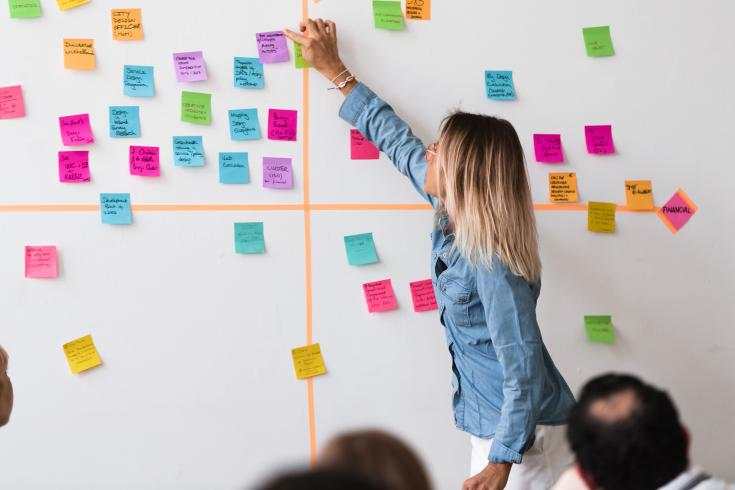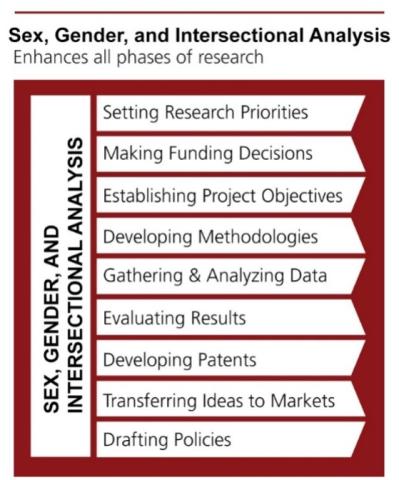Gender equality: fixing the practices for a rapid transformation

Current trends in society acknowledge the urgent need to boost awareness of the role of women and more generally of gender equality in all spheres.
At EU level, the Commission’s objectives are set out in the Gender Equality Strategy 2020-2025. Gender equality is a cross-cutting principle in all EU policy areas, and particular importance is given to the support of gender equality in R&I, and the business sectors.
Gendered innovation
The term 'Gendered Innovations' was coined by Londa Schiebinger in 2005 and Gendered Innovations was initiated at Stanford University in July 2009.
Also, in 2011, the European Commission funded the Expert Group 'Innovation through Gender/Gendered Innovations' under its Framework Programme 7, aimed at developing the gender dimension in EU research and innovation.
Gendered innovation is based on three strategic approaches:
- 'Fix the Numbers' focuses on increasing women's and underrepresented groups' participation.
- 'Fix the Institutions' promotes inclusive equality in careers through structural change in research organizations
- 'Fix the Knowledge' or 'gendered innovations' stimulates excellence in science and technology by integrating sex, gender, and intersectional analysis into research.
A fourth approach, 'Fix the Practice' is also addressed – see, for instance, the Horizon Europe project GILL (Gendered Innovation Living Labs), which creates real-life environments, based on the Living Lab principles, to develop mechanisms such as methodologies, services, and tools to increase Gender Responsive Smart Innovation and Entrepreneurship.
The concept of gendered innovation is also a key subject for European Research Area objectives, as integrating sex and gender analysis adds value to research and increases its societal relevance.
Gender equality and European Programmes and Initiatives
Today, the main Research and Innovation Programme of the EU (Horizon Europe) supports gender equality and gender balance mainly by including it among the evaluation criteria for project selection.
Other initiatives to reduce inequalities and gender gaps are sponsored by the European Commission. For example, the European Innovation Council Prize for Women Innovators celebrates the women entrepreneurs behind Europe's most ground-breaking innovations.
Or the EU Award for Gender Equality Champions, a new prize recognising academic and research organisations driving the change toward gender equality in research and innovation.

Increasing women's representation in business
Across Europe, interesting examples to support gender equality, and increase women's participation and professional development exist and should have increased visibility.
The Interreg Europe project FEMINA (Female participation in high-tech enterprises), aimed to increase female participation in SMEs, especially in high-tech sectors.
The Italian partner Arezzo-Siena Chamber of Commerce has promoted an initiative called 'Donne in quota', which is a series of training courses to support the presence of women on the administration boards of private and public companies.
Francesca Tavanti, Project Manager at Arezzo Innovazione explains that 'Donne in quota had great success and good impact in the territory. The percentage of women with high-level roles within companies (owners, partners, directors, equity partners…) is continuously increasing. Thanks to Donne in Quota more than 130 people have been trained in recent years. They acquired more knowledge and they had the opportunity to get to know each other and team up. Moreover, professional collaborations have arisen between the participants themselves.'
As a result, relevant policy and legislative measures have been adopted and, in 10 years, the representation of women on boards in the Province of Siena has increased from 6% to 33%, and it is, in general, higher compared to Tuscany Region and Italy.
Gender equality in S3 and cluster policies: towards a novel paradigm
The Interreg Europe project DEBUTING (Developing Business Through Inclusiveness and Gender Awareness – New Cluster Competences) considers gender equality as an SME competitiveness factor.
Smart Specialisation is not new, Cluster Policy is not new, Gender Equality is not new, but what is literally new is the way we are addressing all this in one project, through an intertwined approach among the three domains. This project is a pioneer within the whole cluster community, as none of the ongoing or past cluster projects have identified the topic in their agenda.
In 2014, the S3 Platform in Seville told us that no region had integrated gender equality in their smart specialisation strategies, so being the first Region in Europe was a good reason for us to do it because it was already a theme that had drawn the attention of the regional stakeholders due to its increasing importance and consequences if not addressed.
In Värmland, some of the existing initiatives are worth highlighting:
- Gender integration in the smart specialisation strategy. Värmland was the first region in Europe in 2015 to integrate the gender perspective in the strategy as a whole, in the texts, analyses, and selection of smart specialisations and actions.
- Gender Academy for companies to develop their ability to use diversity and equality as a tool for innovation and business advantages.
- Academy for Smart Specialisation where Karlstad University and Region Värmland collaborate to renew the regional challenges in industry, public sector, and research.
- Attraktionskraft Värmland, is a platform where Region Värmland collaborates with the various regional clusters to build commitment and awareness of gender equality aspects linked to skills provision, training, and recruitment.
- Genius Värmland, is a gender equality initiative where different actors gather annually to exchange experiences, knowledge, and inspirations.
“We really need good practices on this topic, and it is great that we are collecting them and sharing them with our partners for inspiration and learning which can lead to policy improvement in the partner regions”, explains Katarina Nordmark, Project Manager at Region Värmland.
Over the next four years, DEBUTING partners will thrive to increase awareness and capacity of policymakers and clusters to address gender equality in the industry as a critical factor for SMEs to grow and become more competitive, including through tools to change organisational cultures and pave the way for a rapid transformation.